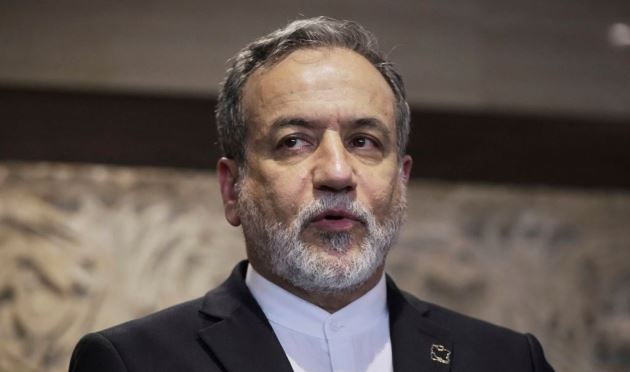The aftermath of these brutal assaults has left a trail of death and destruction, plunging the region into sorrow and disbelief.
As the dust settles, the grim toll reveals a harrowing reality. The assailants, yet to be identified, ruthlessly claimed the lives of at least 15 valiant police officers, a devoted priest, and a vigilant security guard.
Tragically, this onslaught did not spare the religious sanctuaries that provide solace to the faithful. Two churches and two synagogues bore the brunt of this violence, leaving communities shattered and hearts heavy with grief.
Unveiling the horror
Witnesses captured the terrifying scenes on social media, sharing footage of individuals clad in dark attire unleashing deadly gunfire upon police vehicles. The chilling chaos unfolded before the arrival of emergency services, heightening the sense of urgency and desperation.
Meanwhile, in Derbent, a historic city housing an ancient Jewish community, a synagogue and a church fell victim to the assailants’ wrath, reduced to smoldering embers in the wake of incendiary attacks.
As authorities strive to bring those responsible to justice, police are diligently pursuing leads while the hunt for the remaining assailants intensifies.
Reports indicate that Magomed Omarov, the head of the Sergokalinsky district, has been apprehended following allegations that his own sons were involved in these heinous acts.
The search for answers continues, as Dagestan grapples with the unsettling reality that this troubled region has been no stranger to extremist attacks in the past.
Beyond the borders: A troubling trend emerges
Dagestan’s tragic history intertwines with a wider narrative of religious extremism and terrorism. This predominantly Muslim republic, plagued by poverty, has been a target for various jihadist organizations over the years.
From the Caucasus Emirate to the Islamic Emirate of the Caucasus, these movements have sown seeds of discord in not only Dagestan but also neighboring Russian republics like Chechnya, Ingushetia, and Kabardino-Balkaria. The scars of past violence remain fresh, serving as a haunting reminder of the challenges faced by this region.
Amidst the chaos, it is critical to examine the larger narratives at play. The aftermath of the recent attack near Moscow’s Crocus City Hall, where blame was directed towards Ukraine and the West, highlights the delicate balance of Russia’s perceived adversaries.
President Vladimir Putin’s firm assertion that Russia is immune to such terrorist acts due to its interfaith harmony and unity is now being tested. The recent foiled plot by the Islamic State to target a Moscow synagogue further complicates the narrative, shaking the foundations of public trust.
As Russia’s invasion of Ukraine continues to shape perceptions, the authorities are wary of altering the prevailing message, fearing it may sow doubt among the populace. The notion of Ukraine and the “collective West” as primary adversaries remains entrenched, shielding the official narrative from potential scrutiny.
Check also;
- Moscow Concert Hall Attack: Death Toll Potentially Underreported, 143 Individuals Still Missing
- 1 dead, 4 Injured In Shooting At Nashville Restaurant During Easter Brunch Celebrations
Please use the button below to contribute to Newslex Point, Inc. using a credit card or via PayPal.

 Newslex Point News in Uganda, Uganda news
Newslex Point News in Uganda, Uganda news











